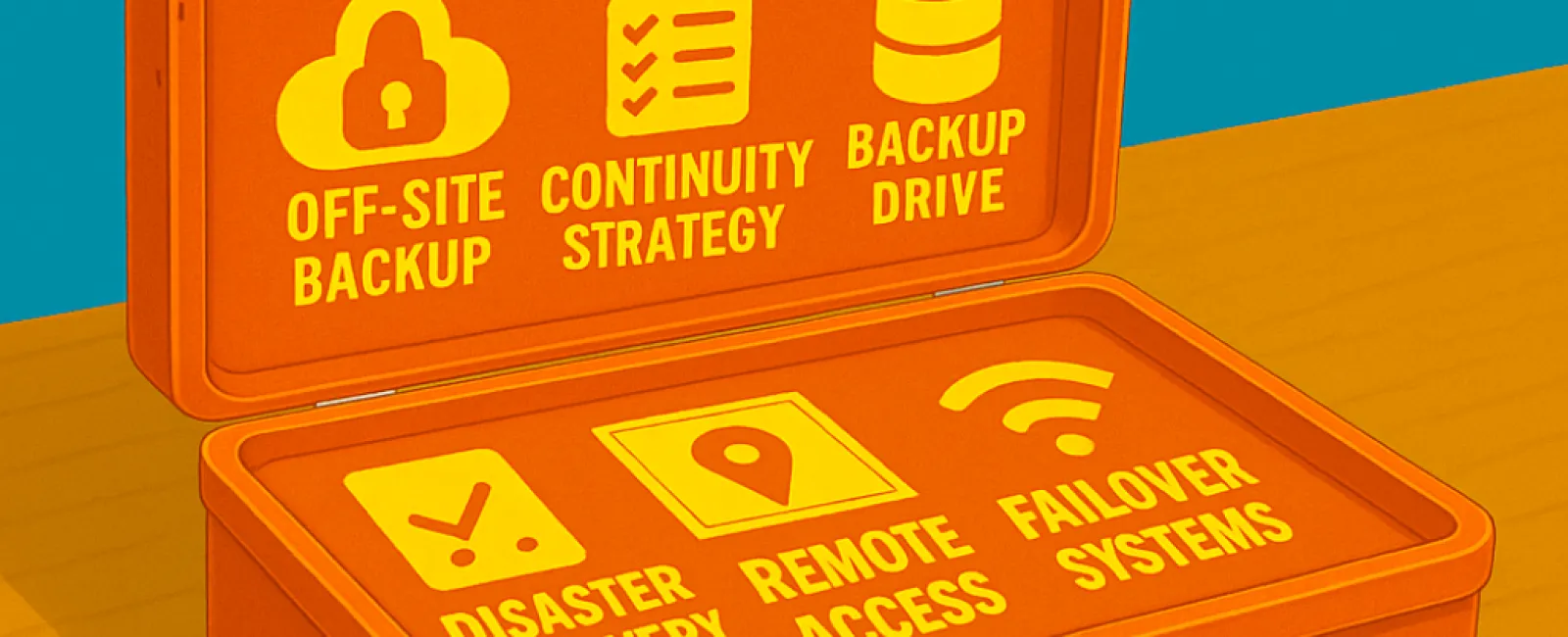July 28, 2025
Unexpected power failures, cyberattacks, hardware malfunctions, and natural calamities can strike without warning, wreaking havoc on small businesses. Many believe that simply having backups is sufficient, but restoring files alone doesn't guarantee business continuity. If your systems are inaccessible, remote work isn't supported, or communication with your team and clients falters, even brief interruptions can cause lasting damage. A dependable IT partner goes beyond backups, delivering a comprehensive strategy to ensure your business stays operational through any crisis.
Why Backups Alone Fall Short — Embrace Business Continuity
Backups are crucial, no doubt. However, they represent only a fragment of what's needed. A robust business continuity plan proactively safeguards your operations during disruptions, enabling seamless functionality amid challenges.
When systems fail, data becomes unreachable, or your workplace is compromised, relying solely on local backup files offers little relief. Without a swift operational recovery plan, you risk severe losses in revenue, reputation, and regulatory compliance.
Backups vs. Business Continuity: Understanding the Critical Difference
Many businesses confuse these two concepts:
● Backups restore your data.
● Continuity ensures your business keeps running regardless of the situation.
An effective continuity plan addresses vital questions such as:
● How quickly can we bounce back?
● Where will the team operate if the office is unreachable?
● Which systems are essential to daily operations?
● Who is in charge of initiating recovery efforts?
It also integrates key elements like:
● Encrypted, off-site, and immutable backups
● Prioritized recovery objectives (RTO/RPO)
● Remote work capabilities
● Redundant systems and automatic failovers
● Regular disaster simulation drills
If your IT provider can't confidently guide you through these essentials, you're not truly protected — just fortunate so far.
Could This Happen To You? Absolutely.
This isn't mere speculation designed to alarm you. These are actual events with tangible impacts. Recently:
● Florida hurricanes forced hundreds of businesses to shut down, paralyzing those without cloud-based access.
● North Carolina floods destroyed on-site servers, erasing months of critical records and invoices.
● California wildfires razed entire offices in the Pacific Palisades, many lacking off-site recovery solutions.
● Numerous small businesses struck by ransomware discovered their backups were either corrupted or untested.
Disasters don't just affect large corporations; they impact businesses like yours every day.
Essential Questions You Should Be Asking Today
If disaster hits tomorrow, will your business endure?
Consult your IT provider with these questions:
● How quickly can we recover if ransomware strikes?
● Are our backups regularly tested, and which systems do they cover?
● What's the contingency if a flood or fire destroys our office?
● Is our continuity plan aligned with industry compliance requirements?
● Can we continue serving clients if our team must work remotely?
If you're not completely confident in these answers, your business is vulnerable.
Disasters Are Inevitable. Downtime Doesn't Have To Be.
While you can't prevent every outage, storm, or cyberattack, you can control how your business responds.
A competent IT provider helps you bounce back.
An exceptional one ensures you never miss a beat.
Curious about your business's resilience?
Click Here or call us at 859-245-0582 to schedule your FREE Discovery Call, and let's ensure disasters never translate into downtime.





